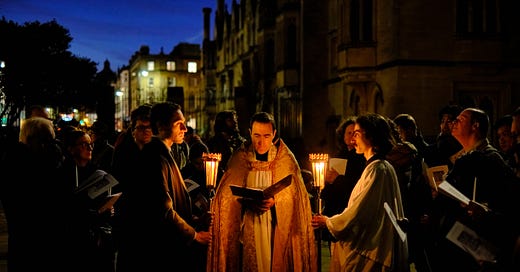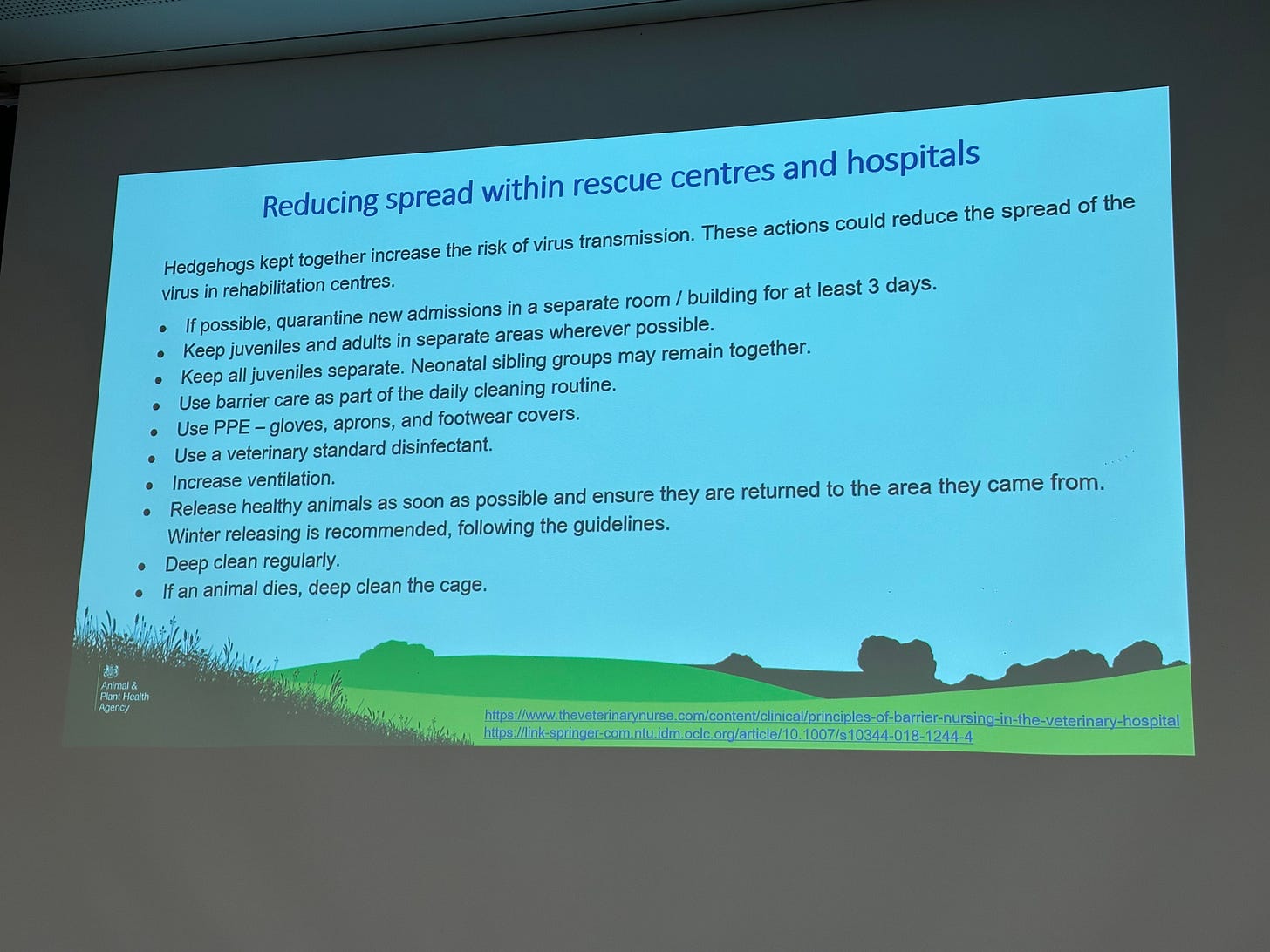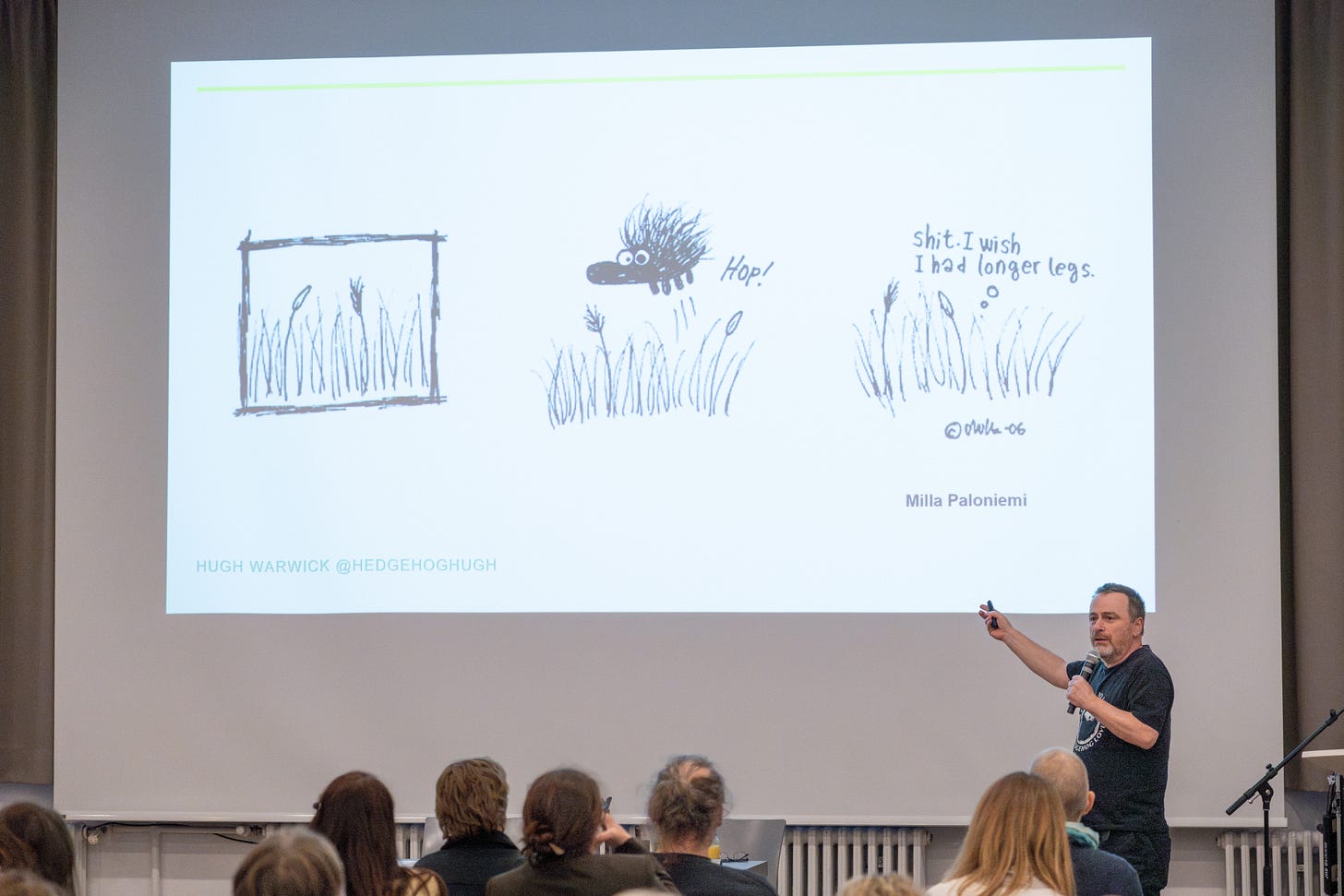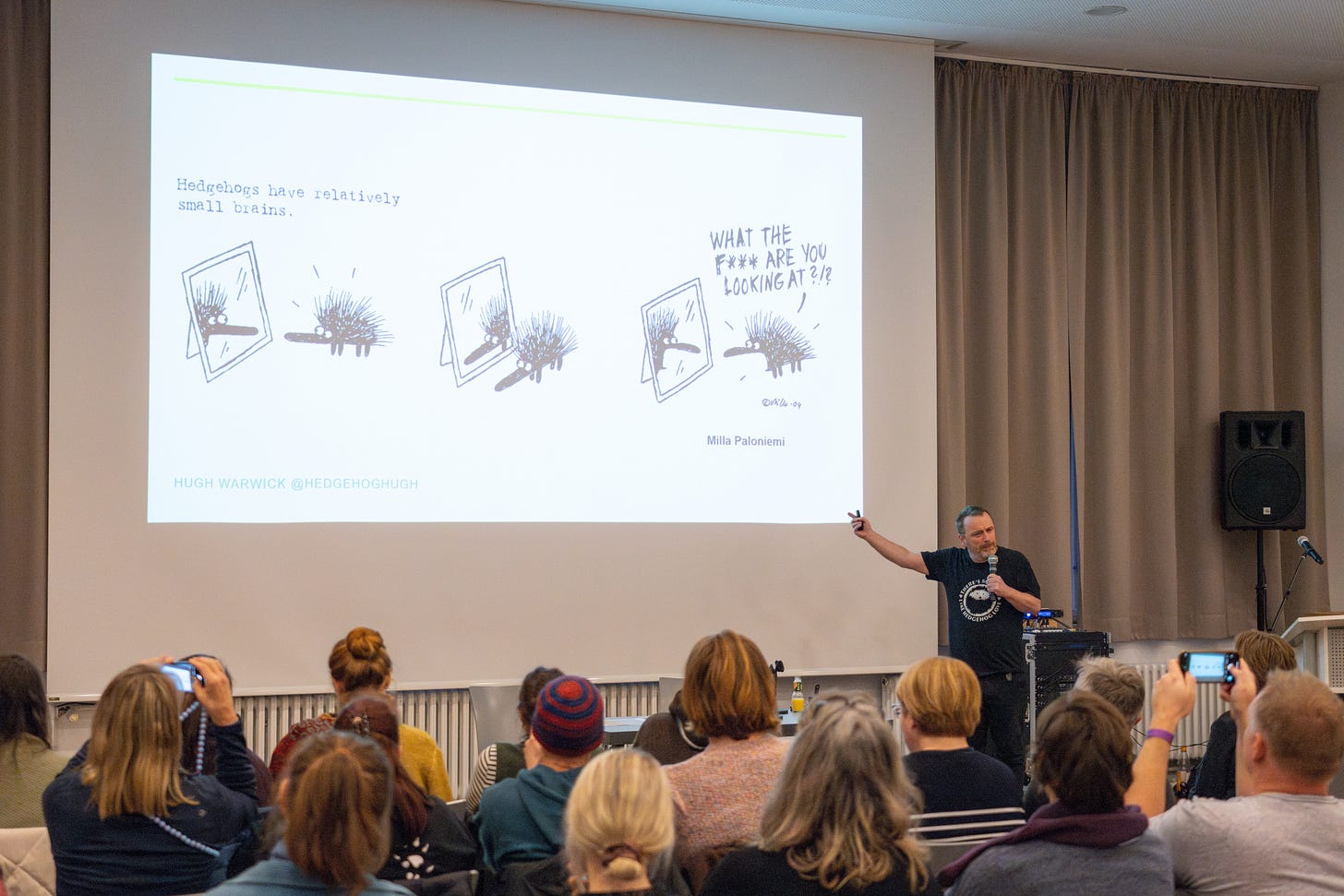Candlemas - 2nd February - is a significant day in the life to the church, as it marks the moment when a 2 year old Jesus is taken to the synagogue and generally causes a good deal of excitement. In fact yesterday I had the great pleasure of attending the service at Magdalen College, Oxford … I am their official photographer - where not only were there lots of candles (and only one person’s hair getting singed) but also a premiere of a new piece by the amazing composer Nico Muhly!
So - why mention this here? Because I got a phone call rather early on Sunday morning from BBC Derbyshire to talk about International Hedgehog Day. Now, I would argue that every day is hedgehog day … but this confection is something relatively new. The hedgehog pet keepers of North America (please have a read of this book if you want to see whether I am making this up or not!) decided that Groundhog Day - made famous by the wonderful movie of the same name - must be based on something ‘old’ … and therefore decided that it must come from the Ancient Roman festival of Hedgehog Day … where if the animal casts a shadow, that is indicative of an extended winter …
But there never was a Roman festival of Hedgehog Day. Though some Candlemas traditions - in Germany - did have a Badger day (Dachstag) …
Anyway - my slightly bleary answer to BBC Derbyshire’s first question about the day was to debunk the entire thing … they probably should not have introduced me with Sonic the Hedgehog music … a glass or two of lovely wine the night before made me overly sensitive!!
However, it did then present me with the chance to talk about the importance of the work that many of us already do - about how the cult of tidiness is killing life on earth, how our fences prevent hogs finding food, water, shelter and chances to mate - and how they are forced to cross roads and risk death thanks to those barriers! So, I will always take the chance to talk about hogs!!
Okay - enough frivolity - back to the European Hedgehog Research Group conference in Berlin (first part of this published two weeks ago).
The second session was all about parasites and disease. I have to admit this is not a strong area for me - but it is important for us to know what is going on with hedgehogs … yes, they naturally have a host of parasites and diseases, as we do - but when the wider environment is out of kilter it is more likely that things can become a problem. So parasites in northern Germany have been looked at with an eye to their zoonotic potential - that is, the chance of infections slipping across from wildlife to us.
A Czech study looked at how to sample for Trichophyton erinacei (that is the fancy name for Ringworm - and the answer as to how ... using interdental brushes on the skin between the spines!) - and then a disturbing look at Hedgehog Diphtheric Disease from researchers in Ghent, Belgium. Hedgehogs brought into rescue with this condition had a very high mortality rate. Interestingly - the disease can be treated with penicillin, but the real trouble comes from a toxin the bacteria produce - causing ulceration - which needs careful wound management.
After lunch … I know … great topics (you should have seen some of the photos!) for lunch … we moved onto work looking at the impacts of parasitic lungworm - and a scary story about an arterivirus that has been causing all sorts of nastiness in some wildlife rescues. It shows the real importance of rescues being honest and also applying scientific rigour - it is such a shame that some refuse to work to the high standards of the best.
There were more papers on this subject - I so admire the work that scientist and carers do to help us further our understanding of what is going on out there. And I am so glad that I am not in a laboratory with all that poo!!
Final part of the first day was … me … I thought that Anne Berger, the organiser, was taking a risk … to have me say silly things about hedgehogs for 45 minutes in an attempt to lighten the mood … this had worked quite well in Hartpury the previous year. But there most of the audience were native English speakers. Here, well, the proceedings were in English (and I was - as ever - utterly humbled by the multilingual capacity of everyone else!) … but would they be able to cope with my silliness? Turns out that mostly they could (though I think that the Monty Python references might have failed to land!) The brilliant Finnish artist Milla Paloniemi let me use a couple of her cartoons from the Cursing Hedgehog series … these worked!
Lots of laughter later, we all headed off for dinner …
These events are as much about the connections we made around the learning - as the learning itself. So important not to remain in our own little bubbles, thinking we know everything and that how we do it is the only way. Science only works because it depends on constantly questioning your ideas.
Quick request … The Littlest Hoglet - a gorgeous short animation - narrated by Chris Packham - is up for an award… and you can help it win by voting …
Next time we will look at the papers on conservation. Thank you for reading!







